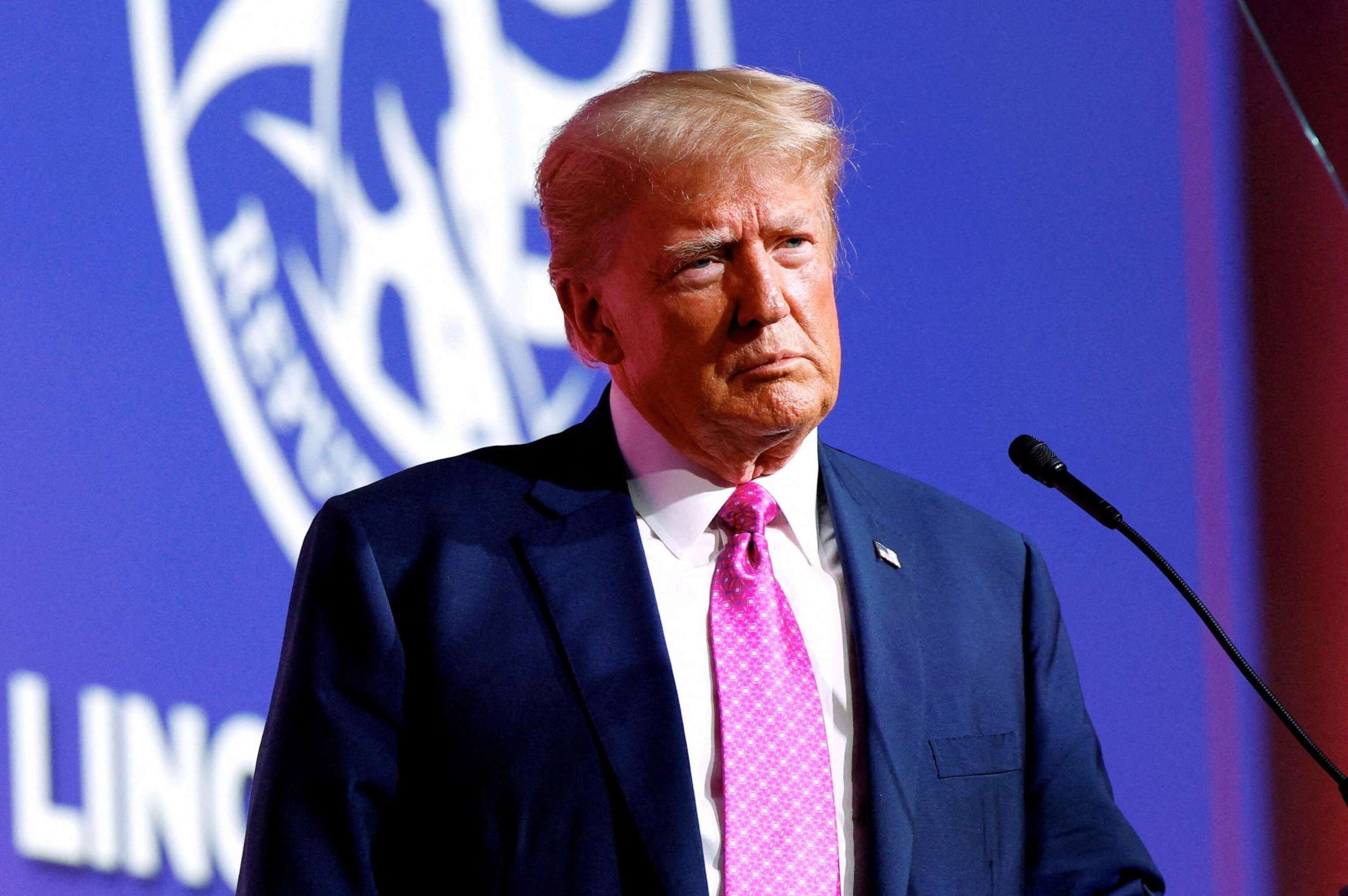Judge hears arguments over whether to move Trump's hush-money case into federal court
Trump is charged with falsifying records related to the Stormy Daniels payment.
A federal judge seemed disinclined on Tuesday to allow former President Donald Trump to move his criminal prosecution in New York into federal court.
"The act for which the president has been indicted does not relate to anything under the color of his office," Judge Alvin Hellerstein said toward the end of a nearly three-hour hearing. The judge said he would issue a written ruling.
"I intend to write and issue a decision within two weeks," the judge said.
The Manhattan district attorney's office has charged Trump with 34 felony counts of falsifying business records. Trump has pleaded not guilty.
Trump in 2017 wrote monthly reimbursement checks to his then-lawyer, Michael Cohen, from his personal funds having nothing to do with his official duties as president, a prosecutor said during the hearing in arguing to keep Trump's criminal prosecution in State Supreme Court in Manhattan instead of federal court, where Trump's defense attorneys say it belongs.
"Writing personal checks, even if he did it in the Oval Office, is not an official act," the prosecutor, Matthew Colangelo, said.
The Manhattan district attorney's office has argued that Trump's alleged falsification of business records was done to conceal the true nature of a $130,000 hush payment to adult film actress Stormy Daniels and was not "related to the color of his office," the standard required to remove the case from State Supreme Court in Manhattan to federal court.

"The president's duties are not all-encompassing," Colangelo, said. "We know the president can, even when he's president, have personal papers."
Trump has argued his case belongs in federal court because his allegedly criminal conduct occurred from February to December 2017, while he was in office.
"There's not a clear line between his personal and professional affairs," defense attorney Todd Blanche said.
Once Trump was elected, he hired Cohen to help separate his private and professional dealings, so the defense argued reimbursement payments to Cohen were properly recorded as payment for legal services.
"Was there a retainer agreement?" Judge Hellerstein asked repeatedly.
"The checks," Blanche answered, referring to the $35,000 monthly reimbursement checks, before conceding he was unaware of a signed retainer.
Alan Garten, the Trump Organization's chief legal officer, testified that Cohen left the company to assume the role of personal attorney to President Trump and was paid $35,000 monthly.
"My understanding was to reimburse him for the payments he had made for the Clifford settlement and to compensate him for the role that he was playing as counsel," Garten said.
On cross-examination, Garten conceded he had seen no retainer agreement for Cohen, only the invoices that prosecutors allege were falsified.




